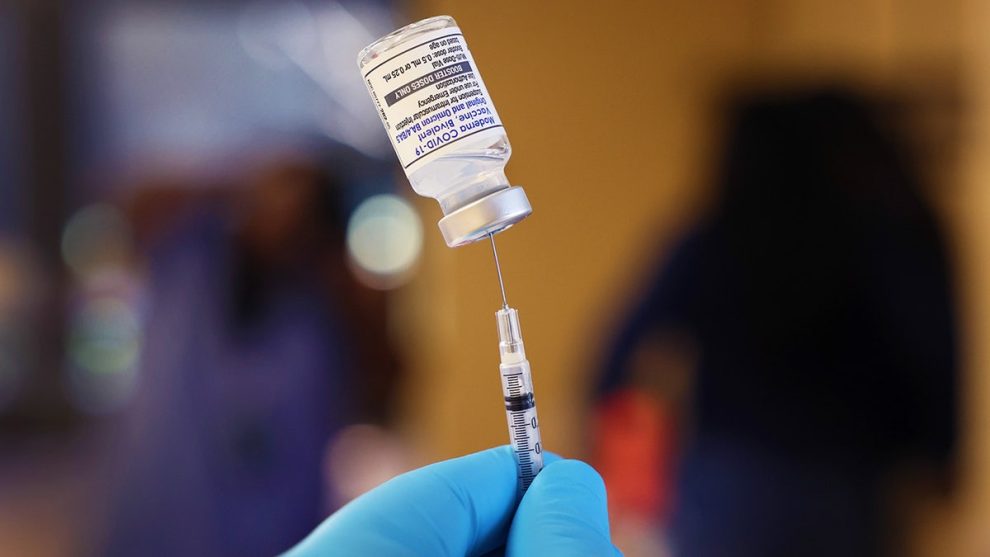A pair of Republican lawmakers in the Idaho state legislature have introduced a bill that would make the administering of mRNA vaccines throughout the state a crime.
Introduced by state Sen. Tammy Nichols and state Rep. Judy Boyle, House Bill 154 would make it possible to charge those who administer mRNA vaccines, such as the Pfizer and Moderna COVID-19 vaccines, in the state of Idaho with a misdemeanor.
“Notwithstanding any other provision of law, a person may not provide or administer a vaccine developed using messenger ribonucleic acid technology for use in an individual or any other mammal in this state,” the bill states. “A person who violates this section is guilty of a misdemeanor.”
Nichols discussed the proposed bill before the House Health and Welfare Committee on Wednesday.
NAVY LIFTS DEPLOYMENT RESTRICTIONS ON SAILORS NOT VACCINATED AGAINST COVID-19
“We are seeing more and more concerns rising because of the mRNA vaccine,” Nichols told the committee. “We have issues that this was fast-tracked, there’s no liability, there’s no access to data, risk-benefit analysis has not been done, there’s no informed consent.”
“There are other options available if people want to get a shot that works with COVID,” she added. “So, I think there’s a lot of discussion that needs to be done on this, I think there’s a lot of information that continues to come out with concerns of blood clots and heart issues, and the correlation versus causation needs to be addressed.”
The Centers for Disease Control and Prevention’s website states that reports of heart conditions following the COVID-19 vaccine are rare, and it has “determined that the benefits (such as prevention of COVID-19 cases and its severe outcomes) outweigh the risks of myocarditis and pericarditis after receipt of mRNA COVID-19 vaccines.”
Pushing the bill, Nichols said mRNA vaccines administered in the state should be dealt with in a “similar manner” like drugs some residents use that are later found to be harmful.
In pushing the bill, Nichols said the state makes determinations about drugs that may not be healthy for residents of Idaho and suggested it should approach the vaccine in a “similar manner.”
GEORGIA SENATE VOTES TO BLOCK COVID-19 VACCINE REQUIREMENTS AT SCHOOLS, GOVERNMENT AGENCIES
State Rep. Ilana Rubel, a Democrat, pressed Nichols on her introduction of the measure and asked about her comments related to the fast-tracking of the vaccines, which were approved by the FDA.
“I understand that these vaccines were initially fast-tracked, but my understanding is that they ultimately were approved under the ordinary approval process and did ultimately, you know, survive the scrutiny of being subjected to all the normal tests . . . am I wrong on that?” Rubel asked.
“There is concern with that, too,” Nichols responded. “I’m seeing conflicting reports in regard to that. So I’m actually having more information being sent to me to address that particular issue, because I’m finding that it may not have been done like we thought it should have been done or that it would have normally been done for an approval process, as an FDA-approved vaccine.”
The mRNA vaccines, according to the U.S. National Library of Medicine’s MedlinePlus, work by “introducing a piece of mRNA that corresponds to a viral protein, usually a small piece of a protein found on the virus’s outer membrane.”
According to the CDC, there are currently three main types of Coronavirus vaccines, including mRNA, viral vector and protein subunit.
COVID-19 vaccines produced by Pfizer and Moderna, according to the CDC, fall into the mRNA category and “use mRNA created in a laboratory to teach our cells how to make a protein – or even just a piece of a protein – that triggers an immune response inside our bodies.”
That immune response, which produces antibodies, is what “helps protect us from getting sick from that germ in the future,” the CDC states on its website.
























